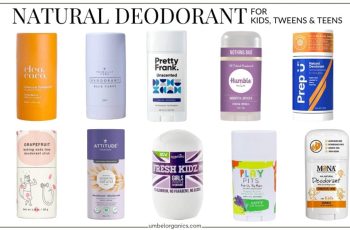
Night Skin Care: How To Take Care of Skin Before Sleeping
Your night skin care is very important to keep your skin blemish free and glowing. As a dermatologist, I often get asked “What’s the best way to take care of my skin at night?” And it’s a great question! The nighttime is when our skin goes into repair mode after a long day of exposure to sun, pollution, and other environmental stressors. Setting up the right evening routine can make a big difference in waking up to healthy, glowing skin. In this blog post, I’ll walk you through the key steps for an effective nighttime skincare regimen and explain why it matters.
Why Evening Skincare Matters
Our skin follows a 24 hour cycle known as a circadian rhythm. During the day, it focuses on protection – generating melanin and antioxidants to shield from UV rays and producing oils and ceramides to maintain the skin barrier. But at night, our cells switch gears to concentrate on rebuilding, restoring, repairing, and rejuvenating the skin.
This makes the evening the perfect time to treat your skin with good evidence-based skincare products that really work.
Any topical products you apply at night won’t be washed away by sweat and grime buildup like during your active daytime hours. Plus, your night cream won’t clash with makeup primers or sunscreen. Without those barriers, the hydrating, anti-aging ingredients in your evening products can really sink in and do their work while you sleep.
Making the most of your skin’s nightly repair cycle also prevents signs of premature aging and damage. Turning on the skin’s renewal process keeps cells healthy and functioning properly to maintain your youthful glow over time. So in a nutshell, not taking care of your skin at night misses a huge opportunity to keep it looking vibrant and resilient!
To find the best night skin care products for you and to build a custom skin care routine by combining many medical grade skincare brands, take the Baumann Skin Type Quiz.
the best night skin care routines
Night Skin Care Routine
Step 1: Evening Facial Cleansing
Cleansing is arguably the most critical part of any skincare routine, but especially at night. During the day, your skin is exposed to a cocktail of dirt, oil, pollutants, and more that builds up on the surface. It combines with sweat, sebum oil, old skin cell debris, leftover traces of makeup/sunscreen, even environmental toxins that settle into pores. Not properly removing these impurities before bed essentially locks them in for 8 hours on your skin and clogs pores – leading to breakouts and congestion.
So the first step is to adequately cleanse away the gunk.
I also recommend double cleansing to thoroughly purify skin, especially if you wear makeup, waterproof sunscreen or have been sweating heavily during your day. Start by massaging an oil or balm cleanser onto dry skin to melt down waxy, sticky products and lift away dirt/impurities trapped within pores. After rinsing, follow up with your regular water-based gel/foaming cleanser to whisk away any remaining traces left behind.
If you have dry or sensitive skin, keep the water temperature lukewarm, avoid over-scrubbing, and pat gently with a towel to dry rather than rubbing. Harsh cleansing can compromise your moisture barrier, which actually worsens many common skin issues.
Best Night Cleanser
The cleanser to use at night depends upon your Baumann Skin Type. Learn more about choosing cleansers for your skin type here.
Types of nighttime cleanser s are acne-fighting salicylic acid cleansing, foaming cleansers to remove excess oil, micellar cleansers to remove makeup, gentle exfoliators like glycolic/lactic acid or creamy soothing cleansers for irritated skin.
Washing your face before bed is a good time to use an exfoliating cleaner or facial scrub. The exfoliating properties sweep away dead skin cells, excess oil, and surface debris that dull skin’s glow without over-drying. Using these before a mask or a treatment serum can help the ingredients absorb better. But- not all skin types should use an exfoliating cleanser.
Step 2: Night Eye Serums
Choose your eye serum based on what eye issues you have. For example, if you have dark circles, night is a great time to apply skin lightening ingredients.
Any eye serums with retinol should be used at night.
Step 3: Treatment Serum
Which serum to choose depends on your skin type and barriers to skin health. Our quiz can help you find which ones are right for you. If retinol is right for you- retinol serums should be used at night.
which serum to use at night
Which Serum to Use at Night
Once skin is squeaky clean, it’s primed to receive treatment serums that target specific concerns like acne breakouts, dark spots, fine lines, dryness and more.
Serums are lightweight, fast-absorbing formulations that contain high concentrations of active ingredients that address skin issues. Unlike heavier creams, these watery textures with smaller molecules penetrate deeper into skin’s surface where they can get to work right away.
Some of my favorite active ingredients to look for in night serums include:
Retinoids (vitamin A derivatives): Stimulate collagen production and accelerate cell turnover to reduce fine lines/wrinkles and smooth texture. Also clears acne by preventing dead skin cell/oil buildup within pores.
Alpha hydroxy acids (AHAs like glycolic, lactic, mandelic acid): Chemically exfoliate by dissolving the “glue” holding dead skin cells together to reveal fresher skin cells underneath. Boost radiance, smooth fine lines, and improve hyperpigmentation.
Exosomes- these antiaging serums restore collagen and give skin radiance. These are the latest technology found in nighttime antiaging serums.
Hyaluronic acid: A hydration powerhouse that pulls in 1000x its weight in water to plump skin and minimize the appearance of fine lines/wrinkles
Growth factors: Naturally occurring skin proteins that declines with age. Replenishing growth factors boost collagen production to maintain youthful elasticity and density.
How to Use Serum at Night
Layer your serums from thinnest/most watery to thicker consistency before sealing everything in with a final moisturizer. This ensures proper absorption. Don’t be shy with serum usage at night – use at least 1/8th of a teaspoon. Some serums should not be mixed together so make sure you follow our instructions on how to layer skincare serums.
This blog on using hyaluronic acid, retinol and Vitamin C can help you understand which serums work well together.
Learn more about how to use face serum in this blog.
Step 4: Lock in Serum Ingredients with Moisturizers
Moisturizers create an occlusive protective seal over serums to keep hydrating ingredients from evaporating overnight. Emollients like ceramides, plant oils, shea/cocoa butters replenish lipids lost during cleansing while humectants such as glycerin, honey, and hyaluronic acid draw in moisture. Occlusive agents like petrolatum, silicones, and waxes form a breathable barrier keeping water locked into the skin.
Some moisturizers specifically formulated for nighttime use as they tend to be richer to nourish skin overnight.(these can also be used in the morning in dry skin types.) Dry skin types should opt for moisture barrier repair creams rather than gels to keep your complexion supple and smooth.
retinoids
Step 5: Retinoid Serum
As you have already heard me say- your skin care routine design really depends upon your Baumann Skin Type. Some skin types such as wrinkle-prone skin types who have never been on a retinoid before- need a 5th retinoid step. Applying retinol on top of your moisturizer helps prevent side effects such as retinoid dermatitis.
Not all skin types should use a retinoid. So take the quiz to get personalized nighttime skincare routine advice.
Take the Quiz
Key Nighttime Skincare Products
These skincare products are good to use at night:
Exfoliants: Sand away dead skin cells, dullness, uneven texture. Try lactic acid, salicylic acid, PHAs, retinols, fruit enzymes. Go for leave-on formulas 1-3x a week in evening.
Hydrating masks: Intense moisture boost when skin’s repair function peaks at night. Look for hyaluronic acid, glycerin/butylene glycol, ceramides, aloe vera. 15-20 minutes then remove excess.
Retinoids: Stimulate collagen and healthy cell turnover to reduce acne, early aging concerns, sun damage, uneven pigmentation. Start slowly 1-2x a week building up to avoid irritation.
DNA repair enzymes: Identify and correct DNA damage from environmental assaults like pollution that accelerate skin aging. Supports skin cell renewal.
Growth factors: Naturally occurring proteins that signal skin to regenerate collagen, elastin to maintain youthful density and contours. Declines with age. Replenishing topically restores firmness.
Exosomes: Tiny extracellular vesicles that facilitate communication between cells to coordinate repair processes. Accelerates healing and healthy cell function.
best night creams by skin type
Night Creams by Skin Type
Taking the skin type quiz will give you better advice on which night creams to match to your Baumann Skin Type- but here are a few facts to know abut what night serums and creams to look for.
Combination Skin Night Products
There is really no true combination skin type. Read here to learn more.
So if you think you have combination skin- you really need to take the quiz. “Combination skin types” should use gently foaming cleansers and light moisturizers in their night routine.
[[M01,M02]]
Sensitive Skin Night Routine
There are 4 types of sensitive skin, so you night routine depends on which combinations of sensitive skin subtypes you have.
Sensitive skin types need soothing ingredients at night such as:
aloe
argan oil
caffeine
chamomile
colloidal oatmeal
green tea
Learn about sensitive skin care here.
night routines for dry skin
Dry Skin Night Routine
If you have dry, dull, rough skin or skin that feels like sandpaper- the skin care you use before going to sleep can help you wake up with smooth radiant skin. Try these steps:
Exfoliate
Apply a hyaluronic acid serum
Cover with a hydrating mask. Leave on as directed.
Remove mask and cover hydrated skin with a barrier repair moisturizer like Zerafite Wrinkle Defense Barrier Cream
Make sure your skincare routine is right for dry skin so you never end up with dull skin again!
Here are some good hyaluronic acid serums to use under a night mask:
[[T30]]
Oily Skin Night Routine
There are toners and clay masks you can use at night for oily skin- but the best thing to do for oily skin at night is a retinoid. This blog tells you which is the best retinol to use at night for beginners.
The reasons for oily types to use retinoids are numerous:
Shrink pores
Unclog pores
Lower sebum production
Treat acne
Prevent acne
Treat wrinkles by restoring collagen
Prevent sagging by protesting elastin
Here are some low strength retinoids to begin with:
[[T11]]
benzoyl peroxide
Acne Night Routine
The bacteria that causes acne reproduces every 12 hours so you must use an ingredient that kills skin bacteria at night if you have acne. Examples are:
Benzoyl peroxide
Topical silver
Topical antibiotics (prescription)
The other must use if you have acne is a retinoid. The retinoid strength to choose depends on many factors like your Baumann Skin Type, what other products you are using, and if you have been on a retinoid before.
Your PM skincare routine matters just as much, if not more than your daily regimen! Night is when your skin repairs itself, making it extra receptive to restorative ingredients.
Follow these core steps to renew your complexion while you sleep:
Double cleanse to thoroughly dissolve the day’s grime, sweat, and makeup
Apply treatment serums packed with corrective active ingredients
Seal everything in with a rich night cream suited for your skin type
Wake up to hydrated, healthy, glowing glass skin!
Stick to a consistent schedule focused on cleansing and hydration along with targeted custom routine for concerns like acne, pigmentation, early aging, etc. Be patient and tweak things if needed until you discover your ideal combination. With time, you’ll reap the amazing benefits of nurturing your skin at night.
You will get good skin faster using a personalized night skin care routine for your Baumann Skin Type- so take the quiz now before you buy any skin care products!


